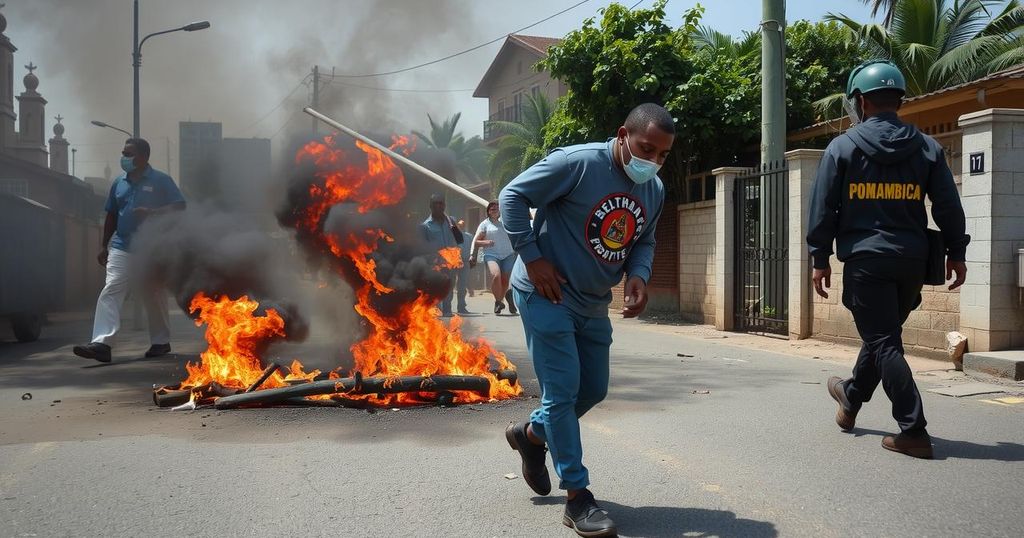Mozambique Faces Turmoil as Youth Rise Against Election Results

Mozambique is experiencing severe unrest following contested electoral results, as citizens rise against the ruling FRELIMO party. The protest anthem “Povo no Poder” has galvanized a new generation of dissenters, leading to significant violence and a rising death toll. The situation escalates with the return of the opposition leader, increasing the potential for further conflict during a critical political juncture.
In Mozambique, social unrest has surged following the ruling party’s contentious claim of victory in the October elections. The atmosphere of dissent has been encapsulated in the revival of a 16-year-old protest anthem known as “Povo no Poder,” which translates to “People in Power.” This song has become a rallying cry for the youth, who are vehemently opposing the ruling party’s long-standing grip on power since the nation’s independence from Portugal in 1975. As protests and riots escalate, the situation has become increasingly grim, with local estimates indicating hundreds of casualties. In a dramatic turn, the exiled opposition leader, who has publicly decried the election results as fraudulent, is scheduled to return to Mozambique imminently, ostensibly to thwart the president-elect’s inauguration. The potential for further chaos looms large in the wake of his return.
Recent developments underscore a deeply fragmented political landscape, wherein opposition to the ruling party has gained momentum, significantly fueled by grievances regarding governance, corruption, and lack of transparency. With history as the backdrop, Mozambique faces a critical juncture as citizens demand accountability and change from an administration perceived to be increasingly authoritarian.
In light of these events, if the opposition succeeds in mobilizing further support, Mozambique could witness significant transformations in its political structure. However, the possibility of violent clashes persists, particularly as the ruling party appears unwilling to concede power or enact reforms. The forthcoming days will be pivotal as citizens continue to assert their rights and reshape their governmental landscape.
Mozambique’s political unrest is a culmination of long-standing dissatisfaction with the ruling FRELIMO party, which has dominated the political scene since the nation achieved independence in 1975. The violent protests have been exacerbated by widespread claims of electoral fraud following the October elections, leading to increased public dissent. The situation has been further complicated by the impending return of the opposition leader, who has rallied those discontented with the current administration, reinforcing the call for systemic change and accountability.
The unrest in Mozambique serves as a stark reminder of the power of public dissent in the face of perceived injustice. As the opposition leader prepares to return to the country, the political landscape is set for a potential showdown between the ruling party and a galvanized populace. The essential question remains whether Mozambique can navigate this crisis through dialogue and reform or if it will descend further into chaos. The current situation not only highlights the urgent need for political legitimacy but also the resilience of a young population demanding change.
Original Source: thedispatch.com







